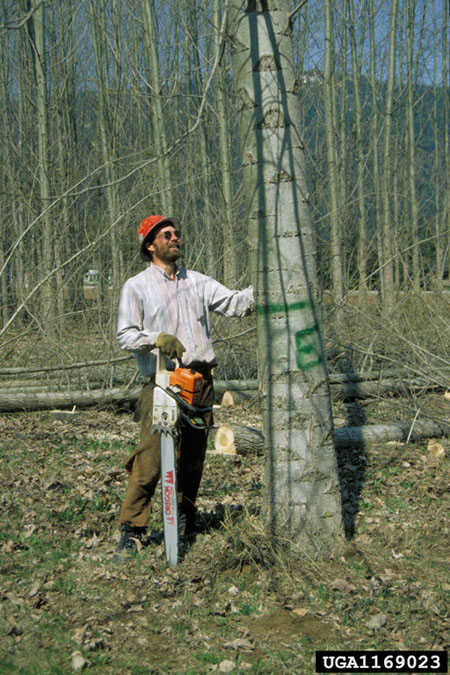Loggers have a lot riding on their working relationship with the landowner, so it is a good idea to understand where they are coming from and what you need to do to find the best one for you.
After spending a modest amount of time felling trees with a chainsaw, I have grown to respect those folks who undertake that kind of work as a profession. Having had my fair share of close calls with falling branches and tension filled stems, I know that I wouldn’t want to spend my life earning a living doing this kind of work. A few hours here and there is plenty for me to get my fix with the saw. Even those loggers working from the comfort of an enclosed cab of a harvester need to be vigilant in their actions so as to be safe and efficient while achieving the management objectives.
The days where it was common for anyone who owns a chainsaw to paint a name on the side of their truck and call themselves loggers have long past. Now if you want to be competitive in the industry, you will most likely be operating a complex piece of machinery that costs hundreds of thousands of dollars. You will invest in many days of training in how to operate that piece of machinery and the regulations surrounding operating it safely and in accordance with environmental laws.
You won’t be spending time sitting around watching the grass grow as you will need to keep timber flowing through your machinery to be able to make payments on it. You will be pushed constantly by your peers to be well versed in the latest techniques and equipment so that you stay profitable and competitive. You may decide to become certified under SFI or FSC, requiring you to pursue continuing education on a wide variety of topics from first aid to Best Management Practices. You will display your commitment to the profession by maintaining connections to professional organizations.
Finally, you will cherish your good name and the list of references that you develop as these can be the pieces that set you apart from others. How do you cultivate that good name? By doing the things you say you are going to do and that are spelled out in the contract with the landowner. By answering the landowner’s questions and addressing their concerns. By sticking to the time frames you have agreed to with the landowner for completing the work and providing payment.
When I talk with folks about working with loggers, these are some of the topics I touch on to help them have a better and more successful relationship. Often landowners are stuck on the vision of loggers as monsters of mayhem in forests who only are after the biggest and quickest dollar. Like any professionals that we hire or work with, there are bad eggs in every bunch. The logging profession is no exception, and without some diligence by the landowner the poor representatives of the profession will continue to flourish.
I have to remind landowners that they need to be proactive in finding the best logger to work with and not just accept the first offer that comes their way. By asking questions about experience, training, and insurance, a landowner has a better chance of connecting to the right logger. Along with questioning the logger, this investigation should include conversations with a forester and landowners, either nearby or members of a woodland owner organization.
I also remind them that their forest will be different following the harvest. By understanding the connection between making these changes and achieving their goals, they will feel more satisfaction with the process and results. Visiting other properties that have been recently harvested is a great way to get a feel for how a forest can change and what things you might need to be aware of.
I take great satisfaction and pride in the work I do with my chainsaw. I believe that most loggers, whether they are working with a chainsaw or from the cab of a harvester, take the same satisfaction and pride in their work and more so since they chose this as their profession.
For more information about timber harvesting and working with loggers, download “Conducting a successful timber sale” .
